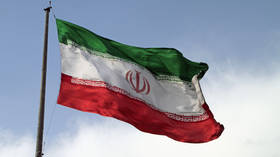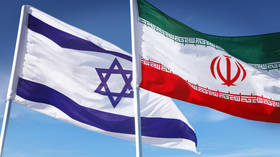Iran blames US for nuclear talks pause

Negotiations aimed at reviving the 2015 nuclear deal have been paused because of Washington’s position, an Iranian official has said. The talks in Vienna directly involve Iran, France, Germany, Britain, Russia and China; while the US is indirectly involved.
Speaking to journalists on Monday, Iranian Foreign Ministry spokesperson Saeed Khatibzadeh said that “America is responsible for the halt of these talks,” though he noted that a “deal is very much within reach.”
He urged Washington to “make a political decision for the deal’s revival,” and warned that Tehran would not “wait forever.”
Last Thursday, the US State Department revealed that a few outstanding issues remain in the negotiations, adding that it was up to Iran to resolve these matters.
Iranian Foreign Minister Hossein Amir-Abdollahian told UN Secretary-General Antonio Guterres on Sunday that Tehran had passed on its “proposals on the remaining issues to the American side through the EU senior negotiator,” adding that “now the ball is in US court.” In the phone conversation with Guterres, cited later by Iran’s Foreign Ministry, Tehran’s top diplomat also claimed that the countries were “close to an agreement in the negotiations.”
Since the US is not taking part in the talks directly, Tehran and Washington are communicating through other participants.
Iran is demanding guarantees from America that no future president of the US would withdraw from the accord, like Donald Trump did back in 2018. In addition, Tehran wants Washington to remove the Islamic Revolutionary Guard Corps – a branch of the Iranian military – from its terrorist list. Iran and the US are also having difficulty agreeing on the extent to which sanctions will be scaled back.
In early March, the talks in Vienna were temporarily halted after Russia demanded guarantees that Western sanctions imposed on it over its military assault on Ukraine would not affect its trade with Iran. Later, Russian Foreign Minister Sergey Lavrov indicated that Moscow had received the kind of written documents it had wanted.
The negotiations, which have lasted nearly a year, are aimed at bringing both the US and Iran into full compliance with the terms of the 2015 nuclear deal, which Washington unilaterally pulled out of in May 2018. If the agreement is revived, the US will be obliged to remove at least part of the crippling sanctions reimposed on Tehran by Trump, while Iran will have to reduce the level of uranium enrichment at its facilities, which had been increased in response to Washington’s withdrawal from the Joint Comprehensive Plan of Action (JCPOA). The nuclear deal would also require Tehran to give the other signatories guarantees that it would not develop nuclear weapons – which Iran has always denied trying to obtain anyway.













